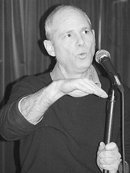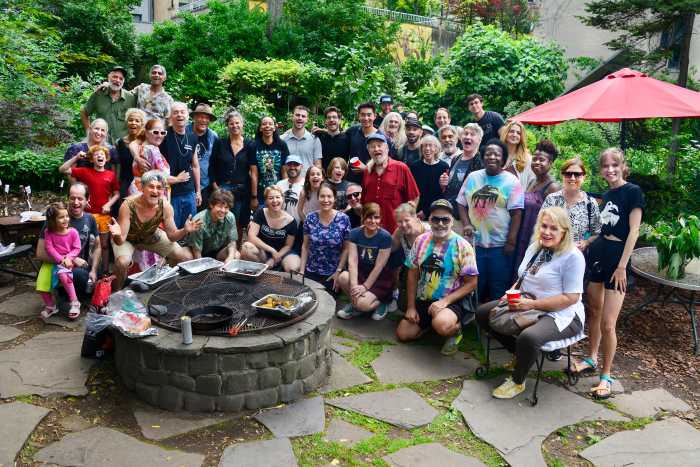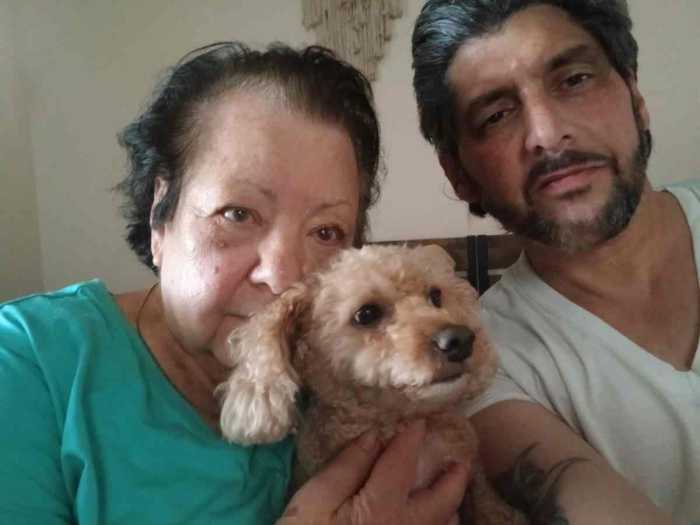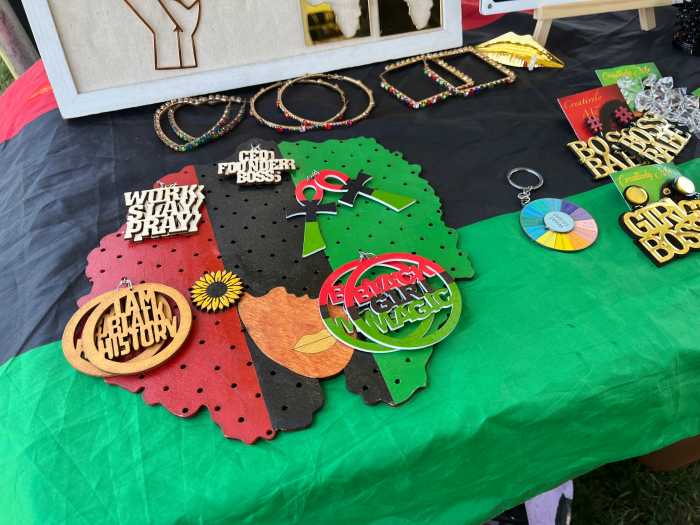By Terry J. Allen
Media coverage of the Iraq war is “one of the most serious institutional failures since Vietnam,” said Michael Massing at the third monthly Downtown Salon. A writer for the New York Review of Books, Massing led some 30 people at the Cornelia Street Cafe in a wide-ranging discussion of “The American Press and Iraq.” The Dec. 13 event was hosted by the New Shul, a progressive Jewish congregation.
In the run-up to the war, Massing said, “the New York Times, exemplified a pretty appalling failure” by media to question the Bush administration’s assertion that Saddam Hussein’s possession weapons of mass destruction threatened U.S. national security. Massing pointed to Judith Miller as “one of the worst offenders” for her stories erroneously touting Saddam’s purchase of aluminum tubes as proof that he was constructing nuclear weapons.
As the war continues, said Massing, some media have grown more skeptical of official pronouncements, but few outlets have conveyed Iraq’s escalating violence and disintegration; fewer still have attempted to document the death and suffering of ordinary people.
Despite extensive reporting on the siege of Fallujah, said Massing by way of example, “we did not see how much of the city was destroyed, the infrastructure — water, electricity — ruined, the bodies rotting in the streets being eaten by dogs, the smell of death everywhere.” Instead, in Fallujah as elsewhere in Iraq, a system reliant on embedded journalists, Army spokespeople and cautious media executives creates a circumscribed view and a dearth of “alternative sources of information.”
The embedding process itself skews reporting, said Massing. Journalists who live with troops have little contact with ordinary Iraqis. And while these embeds get a front row seat to war, their dependence on their unit for safety and access can lead them — out of camaraderie or fear — to self-censor their reporting.
Journalists who do expose brutality, abuse or failure, risk personal and professional consequences. NBC’s Kevin Sites, who filmed a Marine fatally shooting a wounded Iraqi, received death threats after his footage was aired, said Massing. This fall, Wall Street Journal reporter Farnaz Fassihi wrote a private e-mail that was far more candid than her formal reporting. She called the war “a disaster … a violent downward spiral” that has unleashed terrorism and will “most certainly lead to civil war.” After her e-mail leaked and circulated on the Internet, Fassihi went on vacation and “news of Iraq largely disappeared from the paper in the run-up to the election,” said Massing.
Many U.S. reporters, said Massing, are courageous professionals but are hobbled by serious limitations: Just for starters, “few speak Arabic or understand Iraqi culture.” During the first U.S. offensive in Fallujah, said Massing, “reporters assumed that announcements from the tops of minarets were Koranic scriptural readings or calls to resistance; in fact some were desperate pleas for ambulances.”
In another example of miscommunication, Massing cited a U.S. raid in which U.S. soldiers mistreated an Iraqi man after finding a CD in his house with Saddam’s picture on the cover. Although the CD was entitled “The Crimes of Saddam,” the troops, illiterate in Arabic, arrested the man on the assumption that he was a Saddam supporter and possible insurgent.
And even when reporting from the field provides context and depth, media executives back home can limit what the U.S. public sees, says Massing. They are influenced by ratings and circulation, but also by intangible factors as fear of “veering too far from conventional wisdom or of criticizing a popular administration.” They also edit news according to their assessment of the willingness, as Massing puts it, “of the American public to hear what our boys are doing in our names.”
In the discussion that followed Massing’s talk, some Downtown Salon participants asked how the public could impact this confluence of institutional, commercial and military constraints. While not optimistic, Massing noted that demonstrations, letters to media and public pressure by organizations such as FAIR (Fairness and Accuracy in Reporting) can have some effect.
The unrelenting accumulation of facts also helps shift reporting. Eventually, it was the weight of evidence that challenged the administration’s assertions that Saddam possessed weapons of mass destruction, that the Iraqi people welcome American troops as liberators and that Iraq is progressing toward stable democracy. Faced with the erosion of these premises, some media grew more explicit in their criticism of the Bush administration’s war policy and more “embarrassed,” said Massing, “at their previous lack of skepticism.”
Other outlets, such as CNN and Fox, continue “to shield Americans from the brute realities of the war.”
One Salon participant wondered if more detailed and realistic reporting would lead to a better understanding of the war or simply to a “pornographic” indulgence in the gruesome details. Rabbi Niles Goldstein of the New Shul, who had served as an army chaplain between the two Gulf wars, pointed out that after the Arab media aired beheadings, Islamic scholars began an intense debate on whether such practices violate Koranic law.
Amy Eichenwald Golding of the New Shul emphasizes the importance of public discussion here at home. “The Salon offers people an opportunity not only to voice their frustrations,” she said, “but to learn from each other and go beyond information in the media.”







































